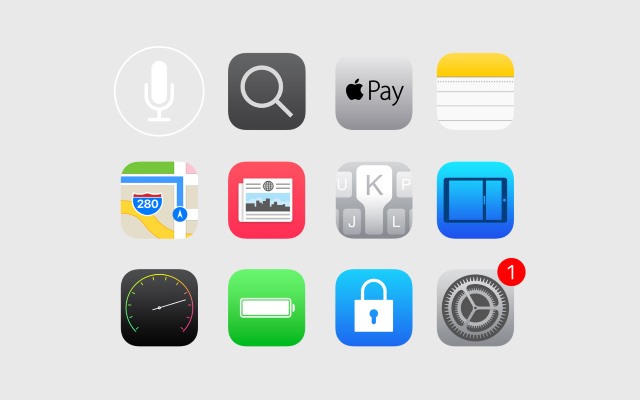
You can no longer review apps if you're an iOS 9 beta tester
Apple is letting developers and enthusiasts test out beta versions of iOS 9 ahead of launch. While the company is keen on getting feedback for the next version of its mobile operating system (just as Microsoft is with the preview builds of Windows 10), there have been concerns that problems with apps during beta testing has led to a swathe of negative reviews in the App Store.
Developers have complained that problems with iOS betas can cause problems with their apps, rather than their apps being inherently problematic. To address the issue, Apple is placing a ban on App Store reviews from iOS 9 beta testers.
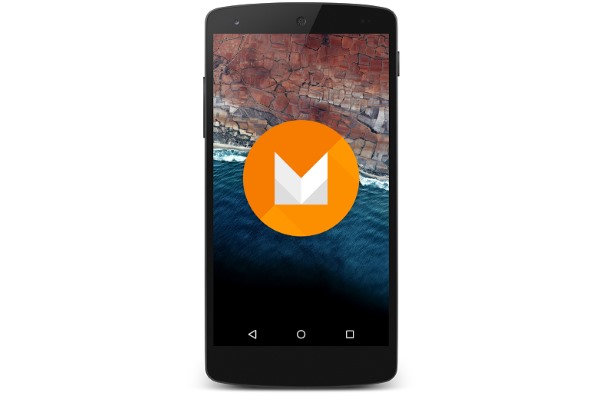
Google updates Android M Developer Preview
It's not long since we first learned about Android M at Google I/O and today Google launches Android M Developer Preview 2. As the name would suggest, this is a build aimed primarily at developers, giving them an opportunity to ensure their apps are ready to take full advantage of everything the latest version of the operating system has to offer.
Two key changes between Lollipop and Android M are improvements to security and battery life. The second developer preview includes more improvements to permission settings such as how fingerprint authentication works and changes to the way permissions are handled for external storage.
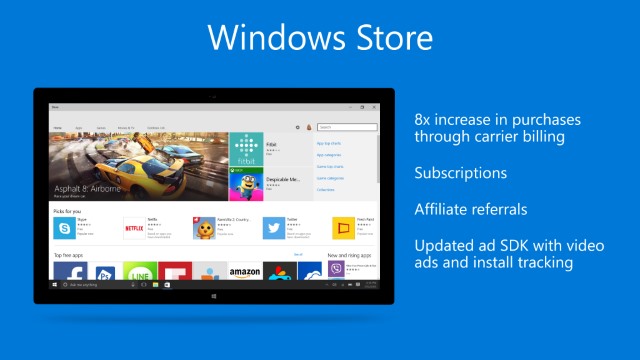
Project Westminster is Microsoft's attempt to boost Windows 10 app numbers
What do you do if you need to encourage developers to produce more apps for your platform? Make it much, much simpler of course. This is the problem Microsoft has faced for some time now, and in a bid to address the issue it hopes Project Westminster is the answer. With the launch of Windows 10 looming, there's never been a better time to be seen addressing the so-called app-gap.
We learned a little about Project Westminster at Build 2015 earlier in the year -- it basically makes it easy to convert existing web apps into Universal Windows Apps that can run on phones, tablets, and computers. Microsoft is also pushing other projects -- Astoria, Islandwood, and Centennial -- for converting Android and iOS apps, as well as traditional Windows applications into universal apps. Is it enough?
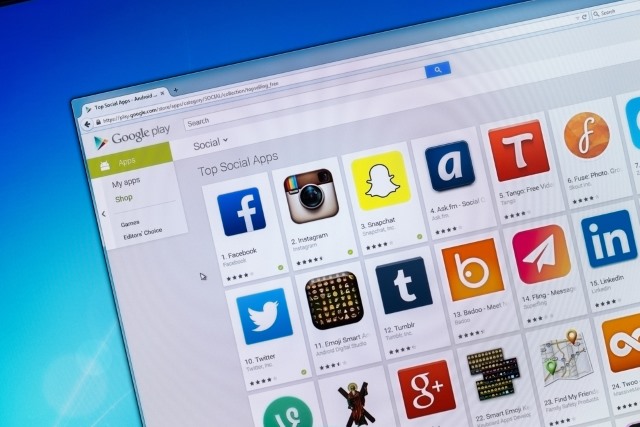
Google asks Android developers to show sensitivity to disasters and atrocity
Today Google revealed an updated version of its Google Play Developer Program Policies. There aren't actually all that many changes or additions, but those that are present are quite interesting. Google is clamping down on the problem of impersonation, making it clearer that it is not permissible to mislead users by imitating other apps, making false claims, or suggesting endorsements that do not exist.
One of the more intriguing changes to the document sees Google calling on developers to show sensitivity to evens such as natural disasters, war, and death. Any apps or other content that attempt to benefit by exploiting such events are explicitly banned.

Internet of Things apps can be very profitable
Although the Internet of Things is often regarded as a technology that is yet to really burst into life, a recent study reveals that it can already be hugely profitable.
An industry survey conducted by Progress and Harbor Research has found that 65 percent of IoT apps are generating revenue, with this figure expected to hit 80 percent by 2018.

iOS 9 makes space for updates by deleting apps... and then reinstalling them
It's only a few weeks since Apple announced some details about iOS 9. One feature that grabbed the attention of many people was Apple's move to address the problem of iOS getting a little fat -- it was announced that iOS 9 will need far less free space to perform an upgrade. But if you are running very short of room, there's a new reason to smile.
The second version of the iOS 9 beta was released to developers today and, as noted by 9to5Mac, Apple's mobile operating system features a great new way to handle devices that are low on space. iOS 9 is now able to temporarily delete apps to free up the necessary megabytes, before reinstalling them when the update is complete.

Google empowers collaborative citizen journalism with News Labs
Google today revealed details of a new project designed to power the world of journalism. News Labs is a joint venture between Google and a number of technology firms and entrepreneurs to make it easier to research and publish stories. It's something aimed primarily at major newsrooms and reporting outlets, but it also features tools that can help to power and promote collaborative citizen journalism.
The search giant has several programs that have been created to make it easier for people to make use of YouTube to deliver and consume news. User-generated news has become increasingly important in recent years, offering not just a wider range of opinion but also unparalleled localization, and Google is keen to be at the heart of it. Newspapers and news websites are far from being the end of journalism; reader interaction adds to the narrative.
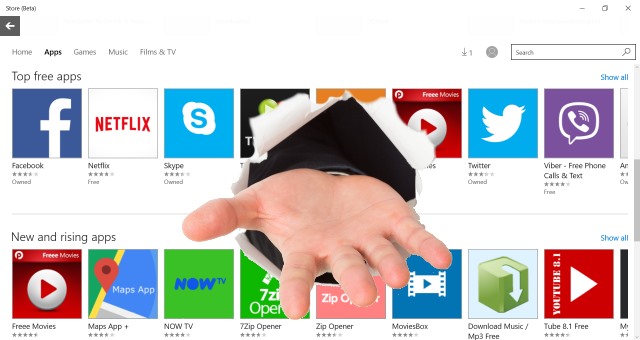
How to sideload apps in Windows 10
The sideloading of apps is something that most people associate with smartphones and tablets. If you want to install unofficial apps on your iPhone, Android, or Windows Phone handset, there are things you can do to make this possible. The same is true with Windows 10 assuming you are using build 10122 or newer.
If you want to be able to install apps that are not featured in the Store, all you need to do is enable Developer Mode. As the name would suggest, this is something that will be of particular interest to developers as it makes it possible for them to test out their own apps before they hit the store, but there's nothing to stop anyone from enabling the mode to take advantage of the same feature. Here's what you need to do.

Female scientists hoping to beat an app-building world record at Google
Apple’s WWDC keynote was noteworthy for a lot of reasons, but one of those was the fact it featured women presenting on stage for the first time. Usually at such events it’s a male-only affair. The tech industry is still dominated by (mostly white) men, and when women make an appearance it generates headlines -- which is both sad and a little crazy.
On Saturday (June 13) an all-female group of IT experts, engineers and scientists will take over the Google Campus at the heart of London’s Tech City in a bid to not only break a Guinness World Record, but also to challenge preconceptions.
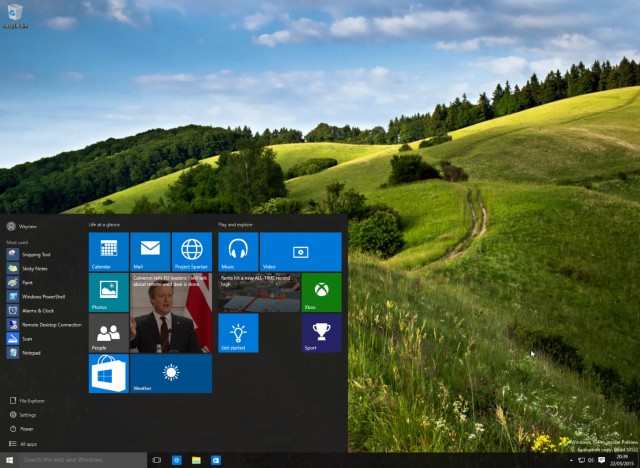
Looking to develop for Windows 10? Microsoft has a guide for you
Windows 10 looms ever closer and there seems to be some noticeable excitement. Perhaps that is simply because of what it isn't -- Windows 8x. But, for any ecosystem to succeed it has to have developers willing to create for it. That's been the lifeblood of Windows, as it is for Android and iOS.
Now Microsoft is offering to help get you started. A new course is being offered in Vitual Academy and it's titled "A Developer's Guide to Windows 10".

Sony Music CEO: Apple WILL launch music streaming service at WWDC
It has been rumored for as long as we can remember (well... almost...). The idea that Apple would launch a streaming music services -- bearing in mind everything else Apple does -- is something that just makes sense. Now the cat is out of the bag as the rumor is confirmed by Doug Morris, CEO of Sony Music.
The official announcement will come from Apple at its World Wide Developers Conference tomorrow (Monday 8 June), but Morris' statement in an interview in the Midem Music Industry Festival in Cannes is a solid source. He said that the launch will represent a "tipping point" for the industry as music listeners make the move from downloading tracks to streaming them on demand. Just don't expect Apple service to be free.
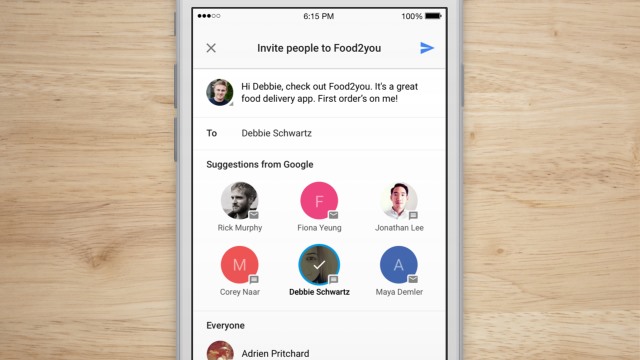
Google brings app invites to iOS and Android devs
You've just discovered an incredible app or game and want to tell everyone you know about it... what do you do? Email your friends with a link to the relevant app in the App Store or Google Play? Make an announcement on Facebook to your contacts? With the introduction of App Invites, Google is bringing this sharing right into apps themselves.
Launched in beta at I/O 2015, App Invites is a feature that does very much what it says on the tin: it enables users of compatible apps to invite their contacts to install an app by sending out notifications via SMS or email. It's a feature that will be welcomed by developers as it opens up one of the most valuable forms of advertising -- word of mouth.

Google revamps age rating system for Android apps in Play Store
Google's system of rating apps and games in the Play Store has been relatively simple up to now. A rudimentary high, medium, and low labelling format has been used to give a rough indication of the age a particular title is suitable for, but things are about to get a lot more complicated. Developers are now required to answer a questionnaire about their apps so they can be assigned movie-style age ratings.
Sounds simple enough, but this is not a global system; different parts of the world have different views of what is suitable for different age groups. What is deemed acceptable for 15-year-olds in one country might be thought suitable only for over 18s somewhere else. Any app that does not receive an age rating will simply not appear in Google Play.

Huawei's LiteOS Internet of Things operating system is a minuscule 10KB
Chinese firm Huawei today announces its IoT OS at an event in Beijing. The company predicts that within a decade there will be 100 billion connected devices and it is keen for its ultra-lightweight operating system to be at the heart of the infrastructure.
Based on Linux, LiteOS weighs in at a mere 10KB -- smaller than a Word document -- but manages to pack in support for zero configuration, auto-discovery, and auto-networking. The operating system will be open for developers to tinker with, and is destined for use in smart homes, wearables, and connected vehicles.

Google stops developers and Mac users installing unofficial Chrome extensions
Google is extending its block on unofficial Chrome extensions to the developer channel and Mac users. The move is a continuation of the decision taken last year that forced people using the stable and beta channels of the Windows version of the browser to stick with official extensions.
It is a decision which aims to stop people from installing malicious add-ons; Google has previously been criticized for failing to clear out junk quickly enough. With immediate effect, those on the developer channel will have to install extensions from the Store, and the policy will be applied to the Mac version of Chrome in a few weeks. All is not lost for anyone who wants to install unofficial extensions, though.
